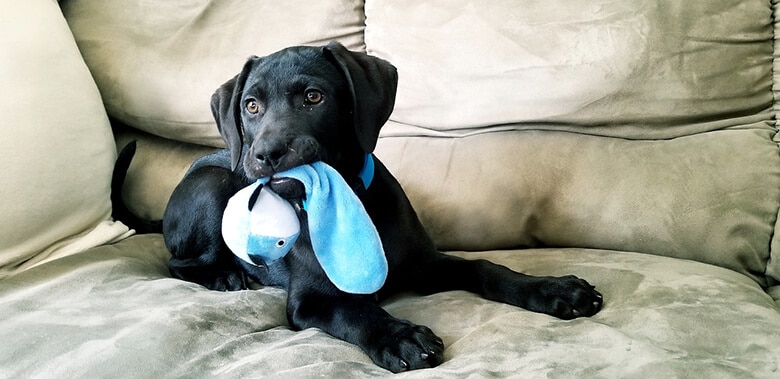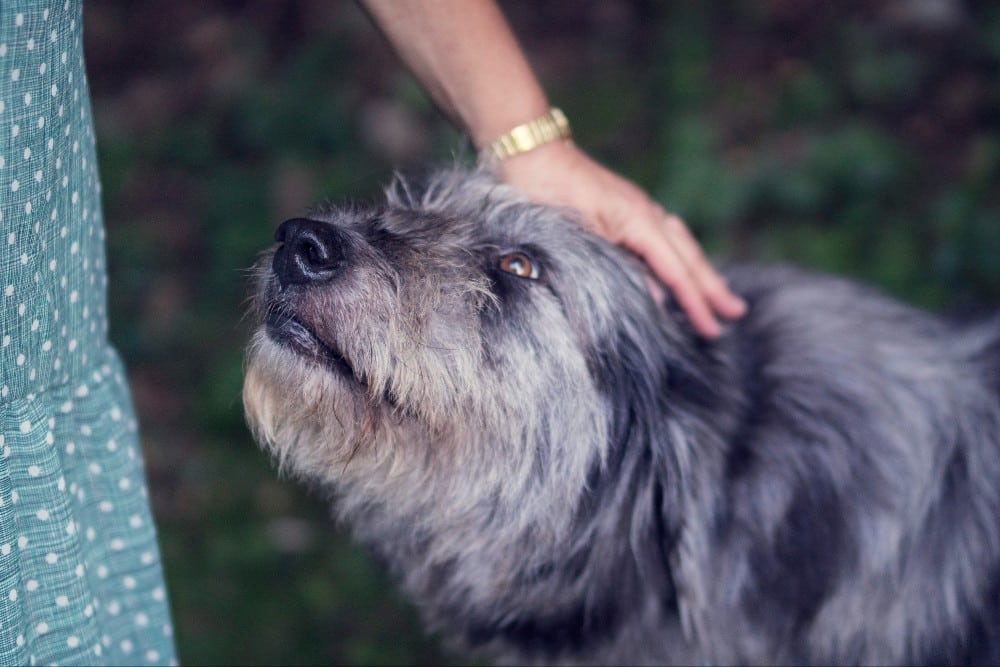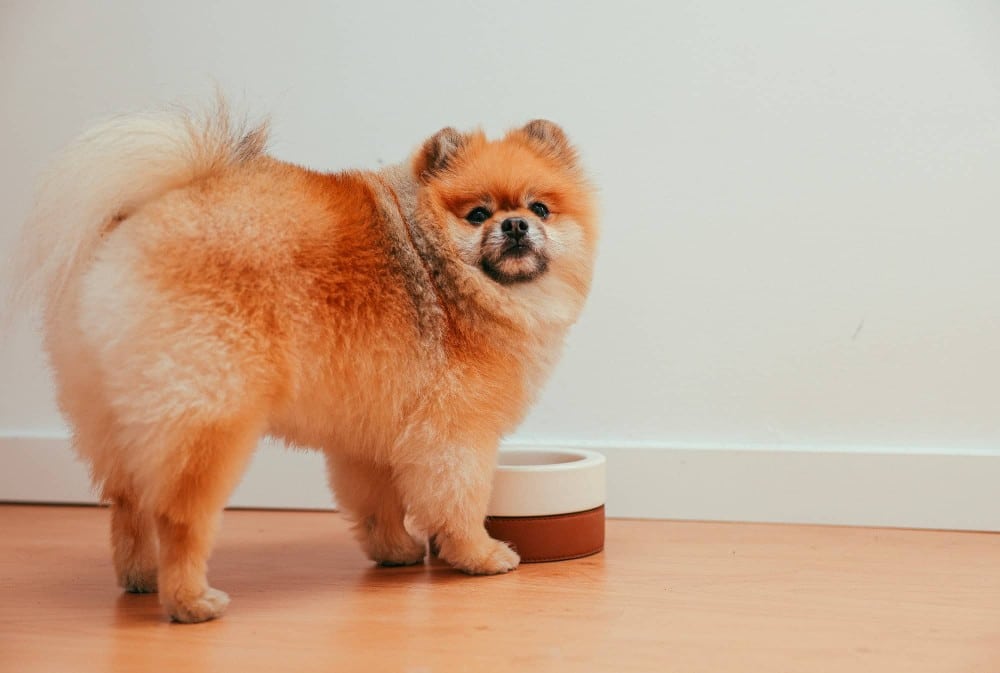Puppies love to play. It’s their official job, and it’s serious business. Play teaches a puppy all kinds of valuable thing, from developing social skills and learning boundaries to building up muscles and learning essential physical skills.
“Puppies learn about life, their own bodies and social interactions though play,” says Mark Van Wye, CEO of Zoom Room, a national indoor dog gym and training facility. Playtime is part of the essential socialization process, and it includes supervised (and safe) play with other puppies and adult dogs as well as with humans of all ages. “Playing with your puppy also increases the bond between you,” he adds.
Related: What to Expect When You’re Expecting a Puppy
For those looking for a few pointers when it comes to puppy playtime, here are a few do’s and don’ts.
Safety first.
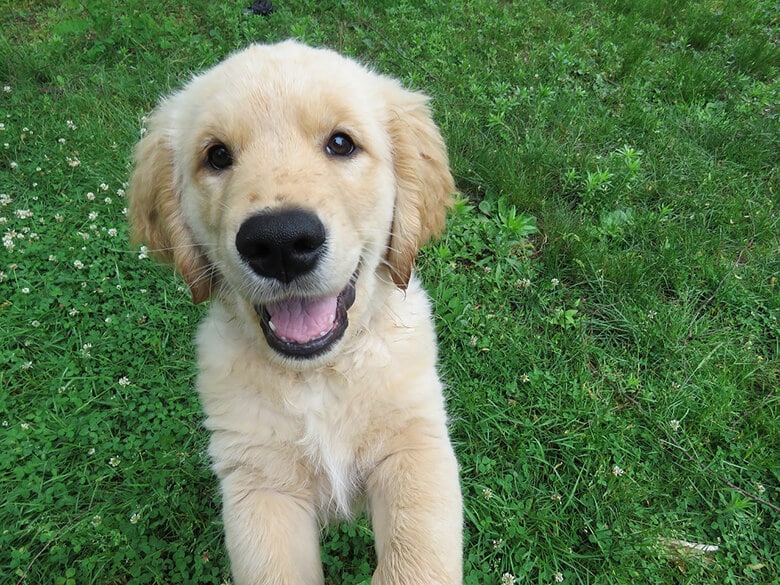
Steffi Trott, a professional dog trainer and owner of SpiritDog Training in Albuquerque, New Mexico, points out that puppies are at an increased risk of injury “Not only can they be quite clumsy and uncoordinated, but a fall or slip during play time might lead to a growth plate injury that can have life-long consequences.”
Make sure your puppy can always see where he is going, says Trott. Don’t hold a toy so high that he has to continually jump for it. “If you are going to play with a toy, sit down on the puppy’s level to make it safe and allow him to keep an eye both on the toy and where is he going.”
Take it slow.
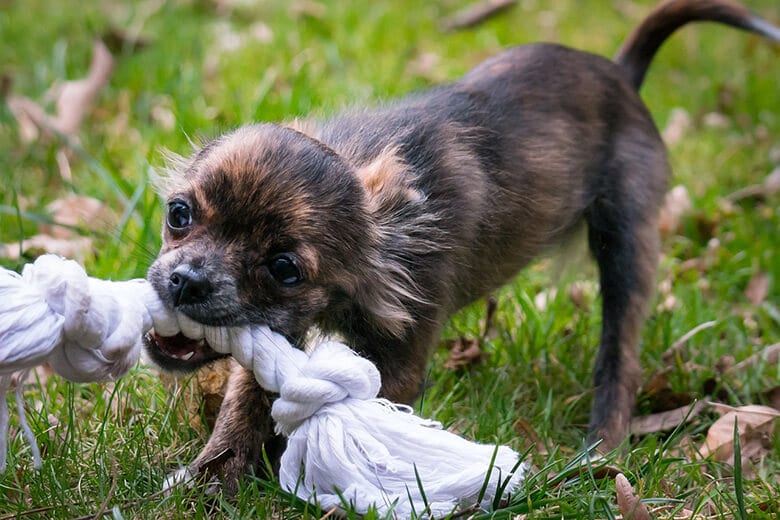
Veterinarian Elizabeth Racine advises puppy parents to avoid high impact activities and sustained exercise until the puppy’s growth plates close, which for most breeds happens around 1 year of age. “The rule of thumb is that the puppy should not engage in any activity beyond what he would normally engage in with other puppies of the same age. This means no five mile runs or endless games of fetch.”
Trott recommends limiting fetch to a minimum with young puppies as the repetitive high impact exercise can lead to a muscle strain or tendon injury. Tug-of-war is a great play activity for puppies because it doesn’t overly strain the body. “But play it the correct way! Never lift up your dog with the toy in his mouth or drastically move the toy from side to side,” she says. “Keep in mind that all movement is absorbed by your dog’s neck and back.”
Be responsible.
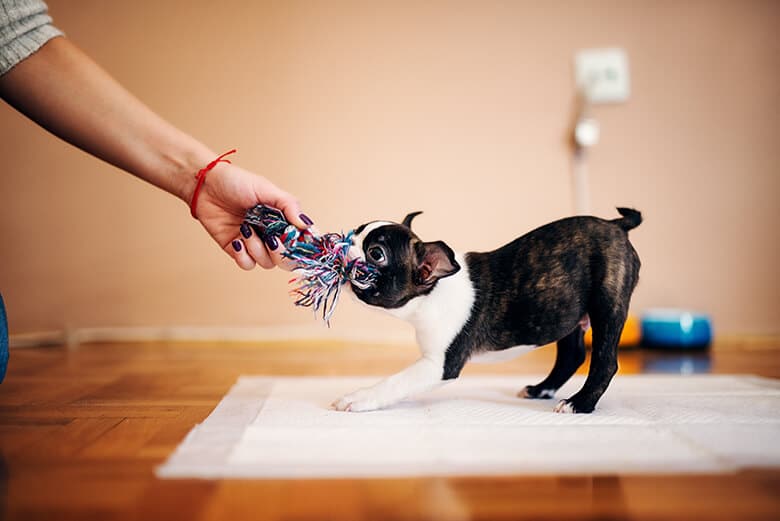
People should never play with a puppy with their bare hands, says Van Wye. “Instead, always use a toy so that you can teach your puppy appropriate items to chew on and redirect him if he chooses your arm instead of the toy” he says. If your puppy decides it’s more fun to chew on you, get up and walk away. “Play session ends until another time,“ Van Wye adds.
Related: Young Woman Fighting Brain Cancer Gets Dream Day: A Puppy Ambush
Never play on slippery surfaces, Trott advises. If your puppy slips and slides on tile or hardwood floors in your home, go outside to play or purchase a non-slip mat or rug for your puppy’s play area. Non-slip yoga mats also work well. “Many young dogs have broken their legs due to slipping on floors, and these injuries are expensive to treat, often requiring surgery, a cast and crate rest, and are painful for the dog,” says Trott.
Make it more about play.
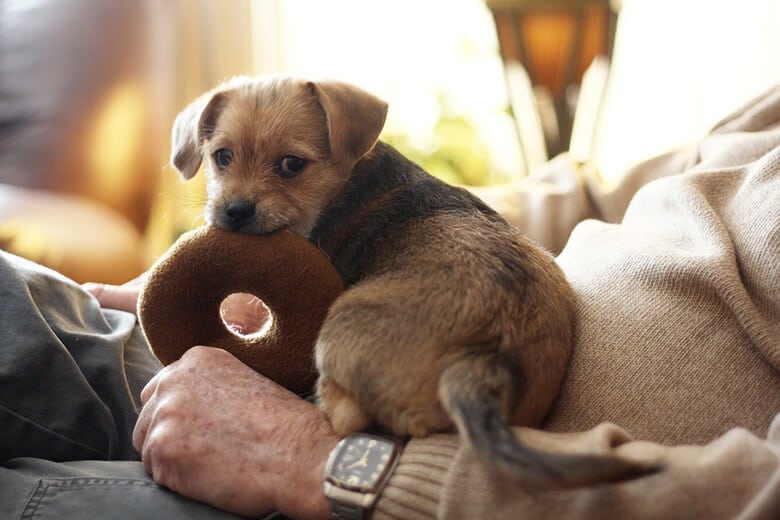
Van Wye advises that puppy parents encourage activity that teaches their puppy good behavior. For example, playing chase games, whether you’re chasing your puppy or running away so the puppy chases you is a risky activity.
“We want our puppies to learn never to run from us; making a game out of chasing them effectively trains them to run away and that it’s okay and enjoyable to do so,” he says. And it isn’t a good idea to encourage your puppy to chase you either. “Your pup might be cute and tiny now, but he will grow larger, and you don’t want him to think it’s okay to run after children or adults and risk knocking them over or jumping on them,” says Van Wye.
Adding other dogs to the mix.
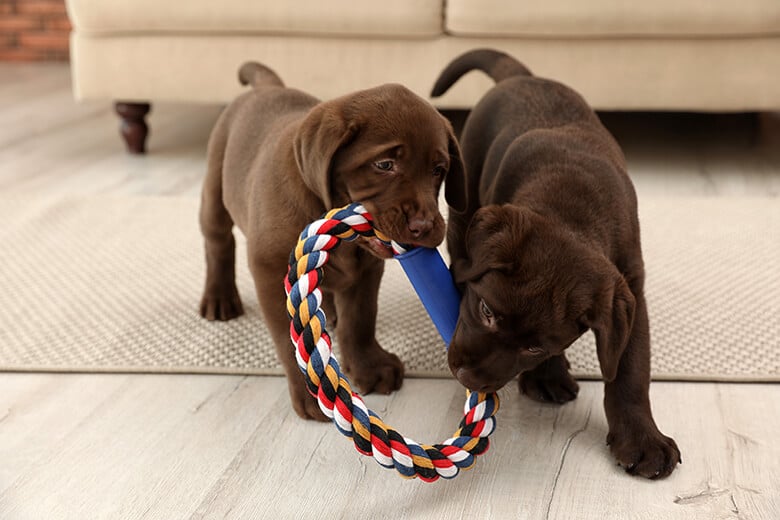
Puppy playgroups offer the opportunity for puppies to play and learn the basic commands in a safe environment, but outside of a group, puppies should stick to playing with other puppies or adult dogs who have been thoroughly socialized and are tolerant of puppies.
“Playtime should always be supervised to ensure play is equal and fair, and so that you can quickly step in if needed,” Van Wye advises. “Puppies can easily become overly aroused during play and need to learn — both from other dogs and from us — what is appropriate and what is not.”
You need to be able to read a dog’s body language to determine if a puppy’s play has become hazardous. “Watch for equitable play styles, loose body language and bouncy hops,” says Van Wye. Pinning and chasing are perfectly fine play behaviors as long as nothing is one sided.”
When a time out is required.
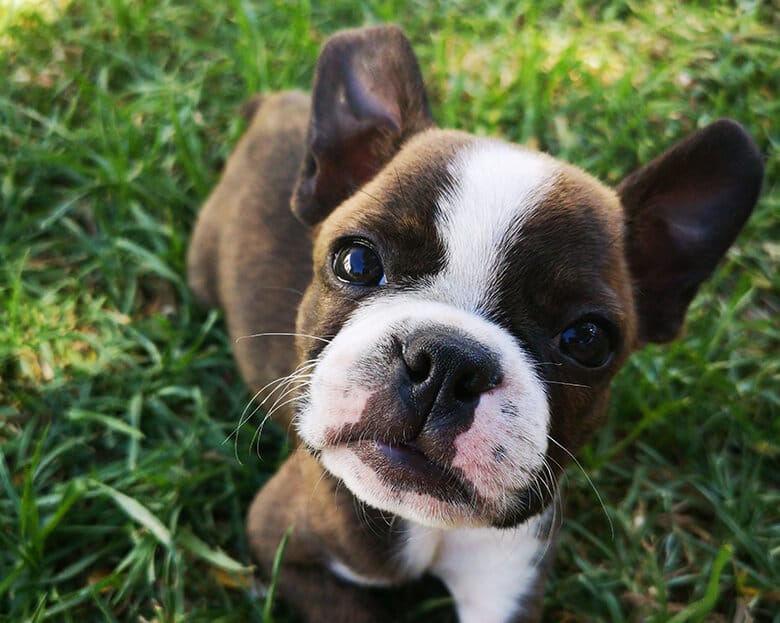
Give your puppy a time-out if you see behaviors such as pinning another puppy for more than a few seconds or repeated pinning, chasing behavior that is entirely one-sided, mounting for more than a few seconds or any signs that the other dog is uncomfortable, Van Wye says. These signs include a tail tucked between the legs, arched back, rolling over to show the belly every time the other (or your) dog comes near, hiding under furniture and showing the whites of the eyes (known as whale eye).
If your puppy appears stressed or fearful, he says, it’s important that you stop the play time immediately. “All interactions should be positive ones.”
Related: Study Proves That Dogs Use Those Puppy Eyes to Communicate With Us













